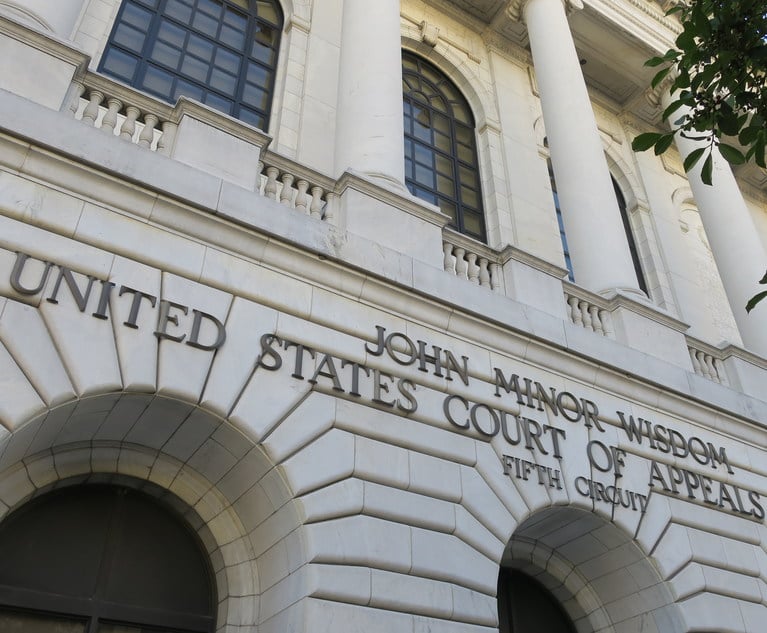 Credit: freshidea/Adobe Stock
Credit: freshidea/Adobe Stock 4 White Collar and Regulatory Enforcement Trends to Watch in 2024
"Since being enacted as part of the Dodd-Frank Act in 2010, the SEC's whistleblower program has revolutionized securities enforcement investigations and paid out hundreds of millions in dollars awards," writes Brendan Quigley.
August 19, 2024 at 02:00 PM
8 minute read
The first half of 2024 saw a number of notable developments across the white collar and regulatory enforcement arena. In light of these trends, discussed more fully below, corporate counsel, compliance professionals, and board members should consider:
- Whether the confidentiality provisions in their companies' employment agreements, consulting agreements, NDAs and similar agreements contain appropriate carve outs for communicating with regulators.
- The effectiveness of their own whistleblower programs, in light of the potential for increased whistleblower activity (and potential scrutiny of those programs) generally.
- Whether their anti-corruption training and third-party diligence processes are capturing potential sanctions and export control violations, in addition to more traditional FCPA compliance.
- What types of trading are prohibited by their companies' insider trading policies and whether the scope of these prohibitions is being adequately explained in training.
- Whether their executives and employees are trained and advised on the requirements to enter into any 10b5-1 plan, in light of recent SEC and DOJ activity in this area.
- The adequacy of any AI-related disclosures they make to investors, in light of the potential for increased SEC scrutiny in this area.
DOJ and CFTC Emphasize Incentivizing and Protecting Whistleblowers
Since being enacted as part of the Dodd-Frank Act in 2010, the SEC's whistleblower program has revolutionized securities enforcement investigations and paid out hundreds of millions in dollars awards.
In the first half of 2024, both the DOJ and CFTC—recognizing that in complex, corporate investigations there is often no substitute for "insider" information about alleged fraud or other misconduct—took steps to strengthen (and in DOJ's case, create) their own whistleblower programs.
NOT FOR REPRINT
© 2025 ALM Global, LLC, All Rights Reserved. Request academic re-use from www.copyright.com. All other uses, submit a request to [email protected]. For more information visit Asset & Logo Licensing.
You Might Like
View All
Crypto Industry Eyes Legislation to Clarify Regulatory Framework

SEC Official Hints at More Restraint With Industry Bars, Less With Wells Meetings
4 minute read
Legal Issues to Watch in the US Appeals Courts in 2025
Trending Stories
- 1How I Made Office Managing Partner: 'Always Be Willing to Work Harder Than the Person Next to You,' Says Esther Cho of Stradley Ronon
- 2People in the News—Feb. 10, 2025—Flaster Greenberg, Tucker Arensberg
- 3The Support Center for Child Advocates Welcomes New Executive Director
- 4'Shame on Us': Lawyer Hits Hard After Judge's Suicide
- 5Upholding the Integrity of the Rule of Law Amid Trump 2.0
Who Got The Work
J. Brugh Lower of Gibbons has entered an appearance for industrial equipment supplier Devco Corporation in a pending trademark infringement lawsuit. The suit, accusing the defendant of selling knock-off Graco products, was filed Dec. 18 in New Jersey District Court by Rivkin Radler on behalf of Graco Inc. and Graco Minnesota. The case, assigned to U.S. District Judge Zahid N. Quraishi, is 3:24-cv-11294, Graco Inc. et al v. Devco Corporation.
Who Got The Work
Rebecca Maller-Stein and Kent A. Yalowitz of Arnold & Porter Kaye Scholer have entered their appearances for Hanaco Venture Capital and its executives, Lior Prosor and David Frankel, in a pending securities lawsuit. The action, filed on Dec. 24 in New York Southern District Court by Zell, Aron & Co. on behalf of Goldeneye Advisors, accuses the defendants of negligently and fraudulently managing the plaintiff's $1 million investment. The case, assigned to U.S. District Judge Vernon S. Broderick, is 1:24-cv-09918, Goldeneye Advisors, LLC v. Hanaco Venture Capital, Ltd. et al.
Who Got The Work
Attorneys from A&O Shearman has stepped in as defense counsel for Toronto-Dominion Bank and other defendants in a pending securities class action. The suit, filed Dec. 11 in New York Southern District Court by Bleichmar Fonti & Auld, accuses the defendants of concealing the bank's 'pervasive' deficiencies in regards to its compliance with the Bank Secrecy Act and the quality of its anti-money laundering controls. The case, assigned to U.S. District Judge Arun Subramanian, is 1:24-cv-09445, Gonzalez v. The Toronto-Dominion Bank et al.
Who Got The Work
Crown Castle International, a Pennsylvania company providing shared communications infrastructure, has turned to Luke D. Wolf of Gordon Rees Scully Mansukhani to fend off a pending breach-of-contract lawsuit. The court action, filed Nov. 25 in Michigan Eastern District Court by Hooper Hathaway PC on behalf of The Town Residences LLC, accuses Crown Castle of failing to transfer approximately $30,000 in utility payments from T-Mobile in breach of a roof-top lease and assignment agreement. The case, assigned to U.S. District Judge Susan K. Declercq, is 2:24-cv-13131, The Town Residences LLC v. T-Mobile US, Inc. et al.
Who Got The Work
Wilfred P. Coronato and Daniel M. Schwartz of McCarter & English have stepped in as defense counsel to Electrolux Home Products Inc. in a pending product liability lawsuit. The court action, filed Nov. 26 in New York Eastern District Court by Poulos Lopiccolo PC and Nagel Rice LLP on behalf of David Stern, alleges that the defendant's refrigerators’ drawers and shelving repeatedly break and fall apart within months after purchase. The case, assigned to U.S. District Judge Joan M. Azrack, is 2:24-cv-08204, Stern v. Electrolux Home Products, Inc.
Featured Firms
Law Offices of Gary Martin Hays & Associates, P.C.
(470) 294-1674
Law Offices of Mark E. Salomone
(857) 444-6468
Smith & Hassler
(713) 739-1250







